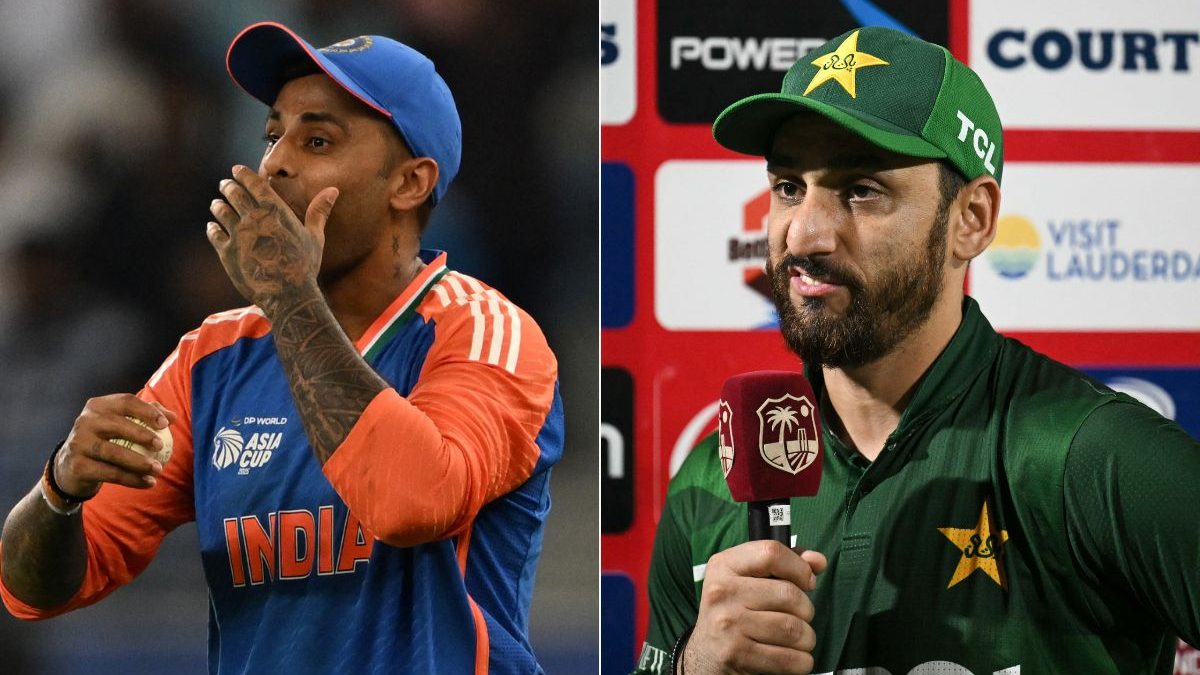India and Pakistan are all set to lock horns against each other in the 2025 Asia Cup on Sunday, September 14. The match is scheduled to be played in Dubai, a neutral venue finalised after Pakistan refused to travel to India for multi-nation events in response to the BCCI’s decision not to send their team to the neighbouring country for any tournament.
The Pakistan cricket team doesn’t enjoy a good record against arch-rivals India in ACC or ICC events. They have won just one World Cup match against the Men in Blue over the past 50 years, which came during the 2021 T20 World Cup in the UAE. Ahead of the marquee clash, former Pakistan captain Rashid Latif has opened up on his team’s poor performance against India in multi-nation tournaments.
Latif has said that emotions often get the better of the Pakistan team when playing against India, and that has cost them many important matches over the years. “We get emotional or hyper and try to do everything in one go. We don’t take the games deep against India and because of this, Pakistan lose most of the time,” Latif said told PTI.
“India on the other hand play according to the pitch and match situation and that’s why they succeed,” he added.
Latif calls Hardik X-factor
Latif feels India’s ability to hold their nerve, backed by Hardik Pandya’s finishing skills, the balance provided by Suryakumar Yadav, Abhishek Sharma and Sanju Samson, and Jasprit Bumrah’s unmatched accuracy, makes them the more complete side at the moment.
“Hardik Pandya is a dangerous player. The players in the middle or those who come below can change the game. Pandya has not done it once but many times, which is amazing and that’s why he’s called the X-factor. He can change the game completely,” Latif said.
Quick Reads
View All“Players like Abhishek Sharma, Sanju Samson, and Surya Kumar Yadav bring balance, Bumrah in bowling is a huge asset. Overall, it’s a very good team,” he said.
For Latif, Bumrah remains the bowler who can tilt the contests.
“As far as bowling is concerned, accuracy is more important. In T20Is, the nerves and skills of Indians work better during the game,” he added.
In the 2022 T20 World Cup at Melbourne, Virat Kohli’s unbeaten 82 pulled India out of trouble to win by four wickets off the final ball.
A year later in the Asia Cup, India hammered Pakistan by 228 runs in Colombo, with their Super Four clash washed out.
In the 2024 T20 World Cup in USA, Bumrah’s three wickets sealed a six-run win as India defended just 119.
‘There is pressure on Pakistan which they have been carrying for the last 30 years. So maybe India will try to take advantage of it,” Latif admitted.
He, however, pointed out one possible Indian weakness that they have not played much T20Is in recent past.
“The only disadvantage in India is that they have not played T20Is. They must be playing warm-up matches or practicing. But they have not played any match. This may be a disadvantage,” Latif said.
Pakistan, meanwhile, come into the tournament having played a triangular series on difficult spinning tracks, an experience Latif feels could help them adapt quickly.
Under new captain Salman Ali Agha, the squad has several youngsters but retains a core group that debuted earlier in the decade.
“Our team is the same. I can say that there are three new players. Salman Ali Agha, who has just recently come. Saim Ayub’s debut in 2024. Hassan Nawaz. The rest are players from 2021, 2018, 2016.
“We also have a new captain and you can say that Pakistan has an advantage,” he said.
Latif believes Sahibzada Farhan could be Pakistan’s surprise package.
“He has been topping the T20 for the last 3-4 years. He has scored around 1000 runs. He has scored 4-5 centuries last season. So he has brought himself back.
“The good thing about him is that he plays T20 cricket the way it should be played. He follows the role given to him. He doesn’t play for himself. He tries to get momentum in the first 10-12 overs and that’s been his success mantra.” He also flagged young batter Hassan Nawaz as another who could rattle India.
“Hassan Nawaz is a dangerous player and does not wait for a bad ball. If he hits a good ball, then the bowler comes under pressure.”
(With agency inputs)
)